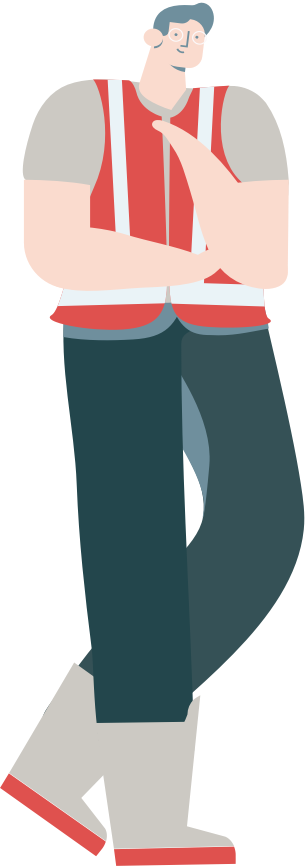






A tip is extra money given to a worker by a customer when paying for a good or service. Example: A server receiving a 15% tip from a customer while they pay for their meal.
Tips are not governed by any laws in Saskatchewan and are not protected from employers.

A wage is money paid by an employer to a worker in exchange for work done.
Deductions are amounts withheld from a worker’s pay by an employer. Example: Canada Pension Plan and Employment Insurance contributions.
Workers must be paid at least minimum wage, and must be paid 1.5 times their regular hourly wage for overtime. Workers are entitled to overtime pay if they exceed 40 hours of work per week, or exceed the set daily hours – which may be 8 or 10 hours.
An employer may not deduct wages or require payment from a worker for damage, breakage, poor quality of work, shoplifting by customers, “dine-and-dashes”, or mistakes.

Known as ‘call out pay’ or ‘reporting for duty pay’, it’s a minimum amount of pay workers are entitled to for reporting to work.
Workers are to be paid a minimum of three hours at their hourly wage. If an employee does work, but works less than three hours, the employer is still required to pay the employee for a minimum of three hours of work at the employee’s hourly wage. Visit the ‘Learn more’ page to see a list of workers that fall under different rules for minimum call out pay.

A work injury is the result of any work-related event that causes a need for medical treatment and/or time away from work.
The Saskatchewan Workers’ Compensation Board (WCB) considers each work injury on an individual basis, but in most cases compensation would apply to injuries that occur while a worker is at work, on company premises or on company business. This includes an occupational disease caused by work.
It is against the law in Saskatchewan not to report a workplace injury. Employees must fill out a W1 form when they are injured at work.

A work schedule generally refers to the days per week and the hours per day that a worker is expected to be at their job.
Employers must give workers notice of when their work begins and ends over a period of at least one week. For more information on schedule changes notice and rest periods, visit the ‘Learn more’ page.

International students can work in Canada with or without a work permit under certain federal restrictions.
You may work on-campus if you have a study permit and are enrolled full-time in an eligible institution. You may work off-campus without a work permit if you have a study permit and are enrolled full-time in an academic, professional or vocational training program at a designated learning institution.

Harassment includes any inappropriate conduct, comment, display, action, or gesture. Harassment can involve repeat occurrences, or a single incident that has a lasting harmful effect on a worker. For the different types of harassment, visit the ‘Learn more’ page.
Employers have a responsibility to ensure a harassment-free workplace. By law, an employer must develop and implement a harassment policy, and ensure that workers are not exposed to harassment in the workplace.

Workers can have their employment terminated with or without cause in Saskatchewan.
Workers must be provided with written notice when being laid off or terminated. Where no notice is provided, employers must provide pay instead of notice equal to the amount of notice the employee is entitled to. For more information on being terminated with and without cause, visit the ‘Learn more’ page.

A union is a democratic organization of workers that negotiate wages and other terms of employment between themselves and their employer through a collective bargaining agreement (CBA).
Once 45% of workers in a workplace sign a union membership card, a secret-ballot vote takes place. If 50% + 1 of workers vote in favour of unionizing, the union becomes the legally certified bargaining agent. For more information on the benefits of forming a union, and a list of what it is illegal for an employer to do with regards to unions, visit the ‘Learn more’ page.